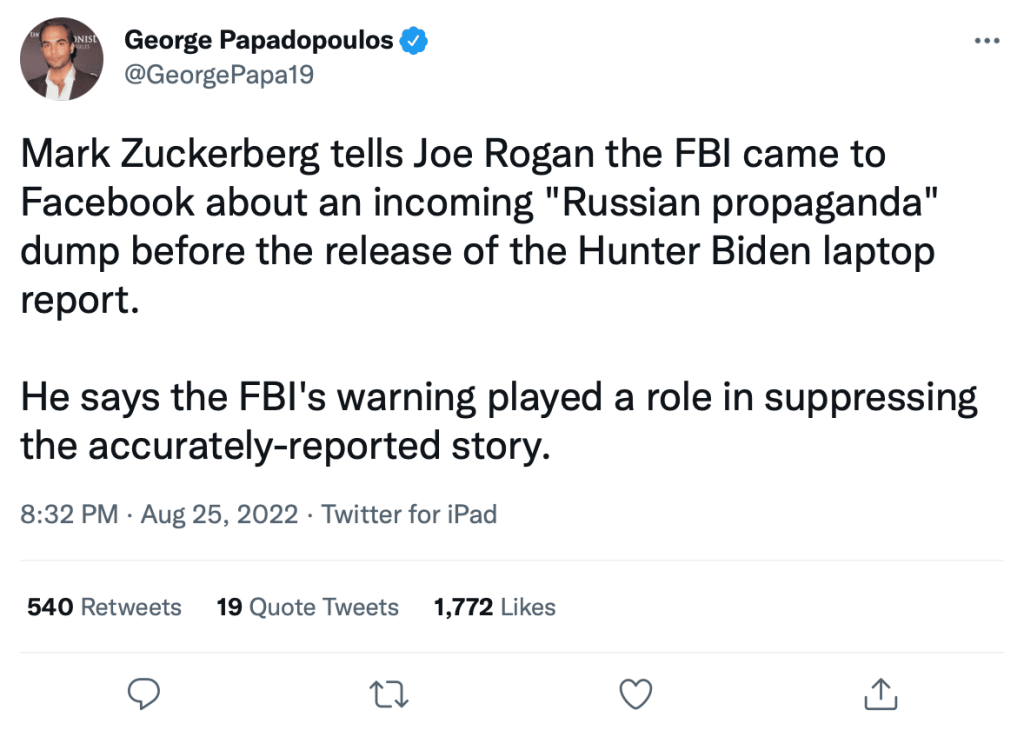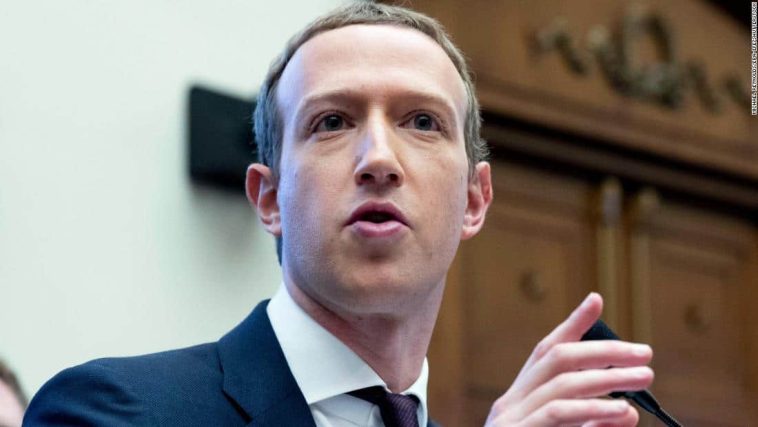On “The Joe Rogan Experience” Thursday, Mark Zuckerberg said the FBI warned Facebook of “Russian propaganda” just before the Hunter Biden laptop story was revealed.
Rogan had asked how Facebook handled the Hunter Biden laptop story in comparison to Twitter.
Zuckerberg responded that his company took a different path after the FBI warned them of misinformation.
“The FBI basically came to us and some folks on our team and said, ‘Hey, just so you know, you should be on high alert, we thought there was a lot of Russian propaganda in the 2016 election and we have noticed that basically there’s about to be some kind of dump that’s similar to that, so be vigilant,'” Zuckerberg explained.
He also said he can’t recall if the FBI specifically mentioned the Hunter Biden laptop story but said it fit “the pattern.”
Zuckerberg went on to explain that when something is marked as potential misinformation, it’s still allowed to be shared but Facebook will decrease the post’s distribution.
He added that Facebook was being hyper-vigilant following the FBI’s warning.
“It basically, the ranking in news feed was a little bit less. Fewer people saw it than would’ve otherwise, so it definitely would’ve—” Zuckerberg said before Rogan asked, “By what percentage?”

Zuckerberg said he wasn’t sure but knew it was a “meaningful” percentage.
“A lot of people were still able to share it…but we weren’t as black and white about it as Twitter,” he explained.
“We just kind of thought hey look, if the FBI, which I still view is a legitimate institution in this country, it’s a very professional law enforcement- they come to us and tell us that we need to be on guard about something then I want to take that seriously,” he said.
When asked if there was any “regret” about suppressing the story that turned out be factual, the Meta CEO replied, “Yeah, yeah. I mean, it sucks.”
He did defend Facebook’s practices, saying the “process was pretty reasonable” based on what Facebook knew at the time.


